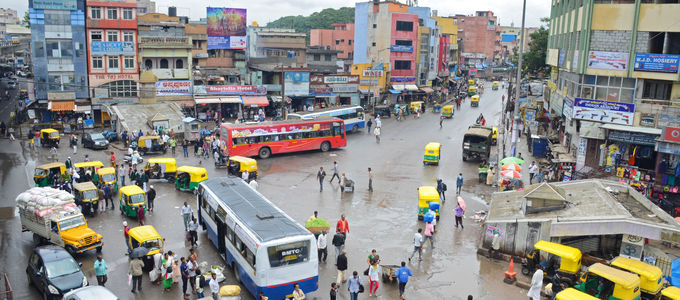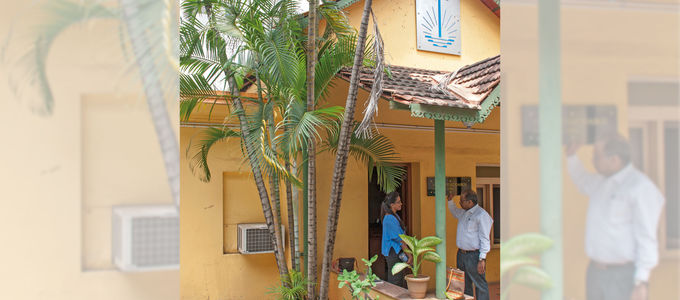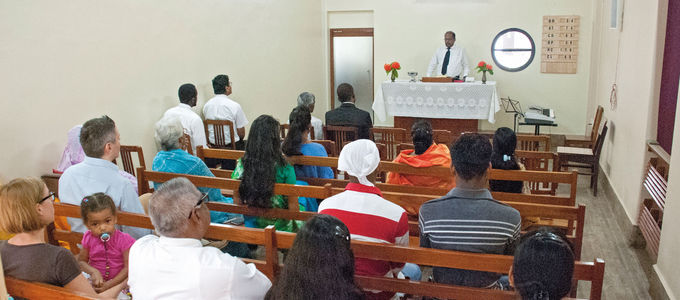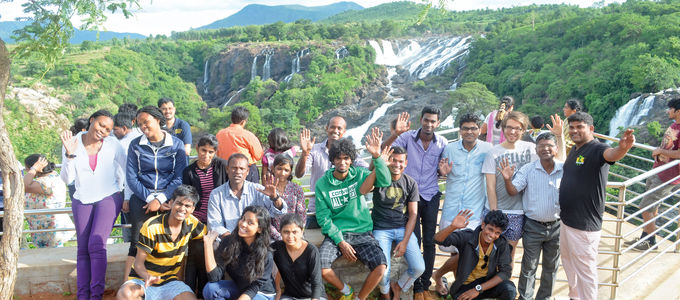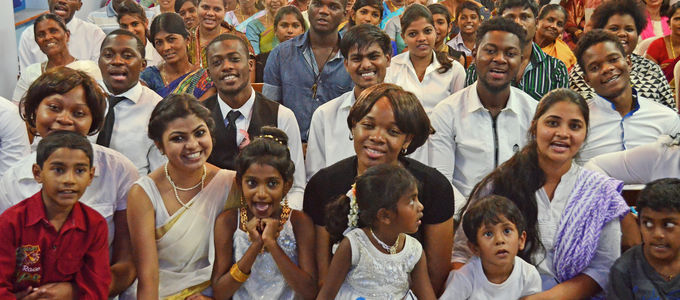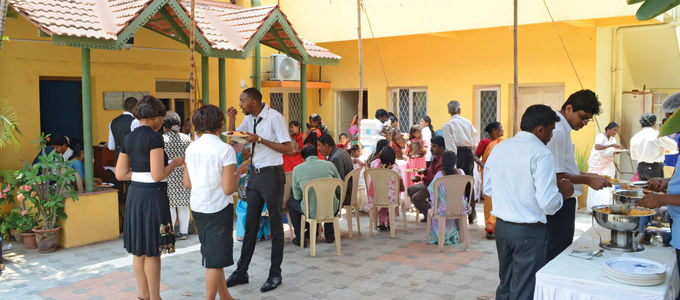Bengaluru Central: unity in diversity
Bengaluru Central, a congregation in the south of India, is as dynamic and diverse as the megacity itself. In addition to local members, the congregation often welcomes visitors from abroad.
Bengaluru, the capital of the state of Karnataka, is the third largest city in India after Mumbai and Delhi. The aerospace industry and the IT sector attract people from around the world. Over the last ten years, the city has grown rapidly from 6.5 to 9.5 million. The mix of religions, cultures, and traditions make Bengaluru (formerly Bangalore) a colourful and enriching city, one that is full of surprises.
A mix of languages and cultures
The congregation of Bengaluru Central is as diverse and dynamic as the city and the country itself: to this day it is the only congregation in India where most of the divine services are conducted in English, as it has become home to people of various cultures from all over the country and the world. The brothers who are called to assist preach either in English, French, or the local languages Kannada and Tamil.
Divine services take place on Sunday mornings, for practical reasons. Midweek services are hardly conceivable on account of the huge traffic congestions across the city in the evening hours and the long working hours of many of the people. Even on Sunday mornings, it takes some of the members up to two hours to cover a distance of 22 kilometres, despite there being less traffic on the roads.
A diverse and dynamic congregation
The regular average attendance is around thirty, but on some occasions this number can suddenly double thanks to an unexpected influx of visitors. Frequently, brothers and sisters from different parts of India, Congo, and Germany attend divine services. As a result, a considerable part of the congregation is here only for short periods of time as they work or study in the city. They usually stay between one to five years and then carry on with their careers. It is a very dynamic congregation with a small core membership and many who stay for a short period and then move on.
The congregation has a special welcoming feel to it as members from different parts of the world work together to create a warm atmosphere and contribute with their various talents. New members are always embraced with love and care. Priest Sunny Arnakonda, the rector of the congregation, says: “I am really happy that members and visitors not only come to attend divine services, but that they also contribute with their various talents. This applies particularly to our brothers and sisters from Africa, who have excellent voices and form a small choir whenever possible.”
Not only open on Sundays
The church premises also house the administrative offices for the New Apostolic Church in India and the office of District Apostle Helper David Devaraj. Thanks to regular meetings of Apostles and Bishops, there are frequent divine services with Apostles and Bishops—often without any prior notification. Also on the premises is a small manufacturing facility for the production of wafers for the whole country. Currently, three people are seeing to the production of the monthly quota of around 200,000 wafers and that they are distributed to the approximately eight hundred congregations across the country.
Then and now
When the congregation was established in 1972, the living room of a residential house was converted into a place where divine services could be conducted. Sathya Kuthottungal, the widow of the late Apostle Jose Kuthottungal, has been a member of Bengaluru Central for more than 40 years. She remembers: “Instead of one compound, there used to be two separate buildings: one was the church and another a small house where Apostle Jose and his family stayed.”
District Elder Samuel Ponraj has served in Bengaluru Central for more than twenty years and says, “I feel that our faith is totally different today from what I experienced during the pioneering days of the work in India. Our faith has become very strong. Even the teaching is different from those days and I am convinced that it takes us closer to God.”
Article info
Author:
Date:
Keywords:
Monika Basche
14.03.2017
India,
International,
Congregational life


